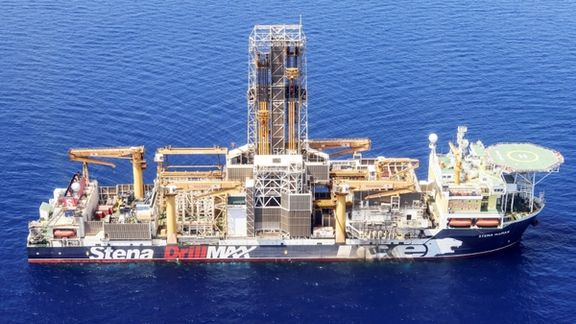Lebanon-Israel Gas Dispute Sends New Ripples Across Region

International energy politics upturned by US and European sanctions against Russia took a further twist Monday as the Lebanese party Hezbollah threatened force against Israel.

International energy politics upturned by US and European sanctions against Russia took a further twist Monday as the Lebanese party Hezbollah threatened force against Israel.
Deputy leader Naim Qassem told Reuters that Hezbollah was ready for action against Israeli gas operations in disputed sea waters, a day after a London-based vessel operated by drilling company Energean arrived at Israel’s bidding to develop the Karish gas field.
Energean, which is listed in London and Tel Aviv, said its floating production storage and offloading vessel was set up 80 km (50 miles) west of Haifa and would be operational by the third quarter of 2022.
Qassem said Hezbollah would act only with the authorization of the Lebanese government, which has warned Israel against the offshore work. Beirut said Monday that with discussions stalled for a year it would now invite Amos Hochstein, a United States mediator, to help resolve matters. Lebanon and Israel have no diplomatic relations.
“When the Lebanese state says that the Israelis are assaulting our waters and our oil, then we are ready to do our part in terms of pressure, deterrence and use of appropriate means – including force,” Qassem said.
“The issue requires a decisive decision from the Lebanese state,” he added, and that Hezbollah “urged the government to hurry up, to set a deadline for itself.” Qassem said Hezbollah would act even at the risk of a wider conflict with Israel.
Preventing escalation
Lebanon hopes offshore gas reserves could alleviate its chronic financial problems, including one of the world’s largest public debts, but is currently struggling to form a government after parliamentary elections last month.
Caretaker Prime Minister Najib Mikati wrote on Twitter that the government aimed at “completing the negotiations to demarcate the southern maritime border and to work on concluding the issue as fast as possible to prevent any escalation that would not serve the state of stability in the region.” Mikati said any Israeli drilling or exploration in a disputed area was “a provocation and an act of aggression.”
With several gas discoveries made in the 2000s in the eastern Mediterranean and Lebanon slow to exploit the resource, there is a significant area where Israel and Lebanon dispute the border.
In a statement on Sunday, the Lebanese presidency said Lebanon had written to the United Nations that Karish was within the disputed area, but Israeli Energy Minister Karine Elharrar told Tel Aviv radio 103 FM there was “unequivocally no” encroachment by Israel.
“Everything to do with the dispute will be resolved in the framework of negotiations between us and Lebanon, mediated by the United States,” Israeli Defense Minister Benny Gantz said in televised remarks.v
While Lebanon and Israel have not been involved in a major conflict since 2006, the fall in Russian energy exports, including both gas and oil, has pushed up world energy prices and increased the attraction of moving ahead with new projects.
Iran, which according to the BP 2021 Statistical Review of World Energy, has the world’s second largest gas reserves, after Russia, and the third largest oil reserves, is closely aligned to Hezbollah. Some analysts suggest Iran has an opportunity to increase its own energy exports, especially to Europe, assuming US sanctions are lifted with restoration of the 2015 Iran nuclear deal, the JCPOA (Joint Comprehensive Plan of Action).